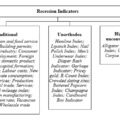All eyes were on the 2018 NATO summit, as President Trump was poised to wreak havoc during his time in Brussels. He started his Wednesday by taking a swing at Europe’s most controversial mega-project, the Nord Stream 2 gas pipeline. The President’s goal may be to leverage the project in pressuring NATO member states to bump their defense spending, but he has stumbled onto highly contentious and acute terrain. Nord Stream 2 is set to circumvent Ukraine and by extension Central and Eastern Europe (CEE) when delivering Russian gas to Germany—Gazprom’s largest European buyer. On the face of it, it would only re-route gas, but its contribution to increasing Russian influence in Europe, while escalating European disunity is what makes Nord Stream 2 so problematic.
The debacle is definitely not of new-found nature. “The Reagan Administration has opposed the pipeline project, contending that it would make Europe dangerously dependent on Soviet energy supplies and that it would provide the Kremlin with much needed hard currency that could be spent on extra weaponry. […] European governments, however, say that American fears about European dependence on Soviet gas supplies are ill-founded and exaggerated.” If we substitute Reagan for US and Soviet for Russia, then we may be looking at a timeless paragraph. The snippet is from a piece written by Paul Lewis for the New York Times in 1982, although the core message and state of the USA-Europe-Russia gas-related positions has lost little of its relevancy.
The piece was a response to the planned Urengoy-Pomary-Uzhgorod pipeline, frequently referred to as the Brotherhood Pipeline. It was initiated to deliver—what later grew to—over 100 billion cubic meters of natural gas from the Urengoy field in Siberia to European consumers. European leaders were aligned behind the project. They argued that it would lift the European economy, create jobs, while providing an affordable and relatively clean source of energy. Moscow could not have been more thrilled to push the Brotherhood Pipeline forward, given its tanking economy and dire need for foreign currency. It would also grant the Soviet Union access to valuable Western European technology. On the other hand, the US opposed the pipeline on the grounds of the Reagan Administration’s strategy to bar cooperation with the USSR. The Brotherhood Pipeline stalled, but Western European backing led to its completion by 1984.
Nord Stream 2 is not linked to boosting GDP growth or creating jobs, as was the Brotherhood Pipeline. Instead, Germany is looking to ensure stable supplies. It is pursuing its self-interests, all the while curbing the cooperation maintaining the European Union. The geopolitical game is reduced from USA-Europe-Soviet Union to USA-Germany-Russia. This pits Berlin against its EU (and NATO) counterparts in a day and age, when the grand European peace project is in shambles. Leverage will be diverted to Moscow, as Berlin withdraws its backing from gas flowing through the CEE. The Kremlin is unlikely to hesitate from flexing its muscle in the region, especially as its influence is already growing with the wave of pro-Russia governments being inaugurated in the past year or so—think of Italy or Hungary. The East-West divide reminiscent of the Cold War will not only sustain with relations between the West and Moscow strained, but the front line of this very divide can be pushed westwards.
EU countries in the CEE regions may be gradually able to resolve supply shortages through the European gas market inching towards full integration, but this is only likely towards the beginning of the next decade. Nord Stream 2 would divert massive volumes of gas through Germany, shifting the scape from an east-west dynamic to a north-south. This remains underdeveloped, with German capacities insufficient to transit and distribute a rerouted 55 billion cubic meters of gas anytime soon. Poland would also need to complete its north-south corridor to bump energy security in the CEE countries. Alternative import routes are also creeping into the picture. The TAP-TANAP pipeline system—delivering Azeri gas—is nearing completion, Poland’s ambitions to import Norwegian gas should materialise by 2022, Poland’s utilisation of its LNG import terminal is relatively high, and Krk LNG just may be constructed after all. These all resolve the technicalities of a fall-out from German transit through the region, but they are unable to bridge the deepening divide inflicted by Berlin’s decision to pick at the EU’s unity.
As in 1982, Moscow still relies on gas-based revenues for hard currency that props up its economy and helps it finance its grand military budget, European states remain to shake reliance-related concerns, and the US still opposes Europe’s growing dependence on Russian gas. Reagan did not intervene back then, but the Trump Administration should intervene now. Washington’s sanctions would definitely cause a stir with its ally, Germany, but it may inflict a much-needed push for Chancellor Merkel’s government in the right direction. Otherwise, Berlin’s decision to act in a realist manner vis-à-vis its closest EU allies may prompt further disunity in the bloc, while eating away German leadership’s legitimacy.
John Szabó






